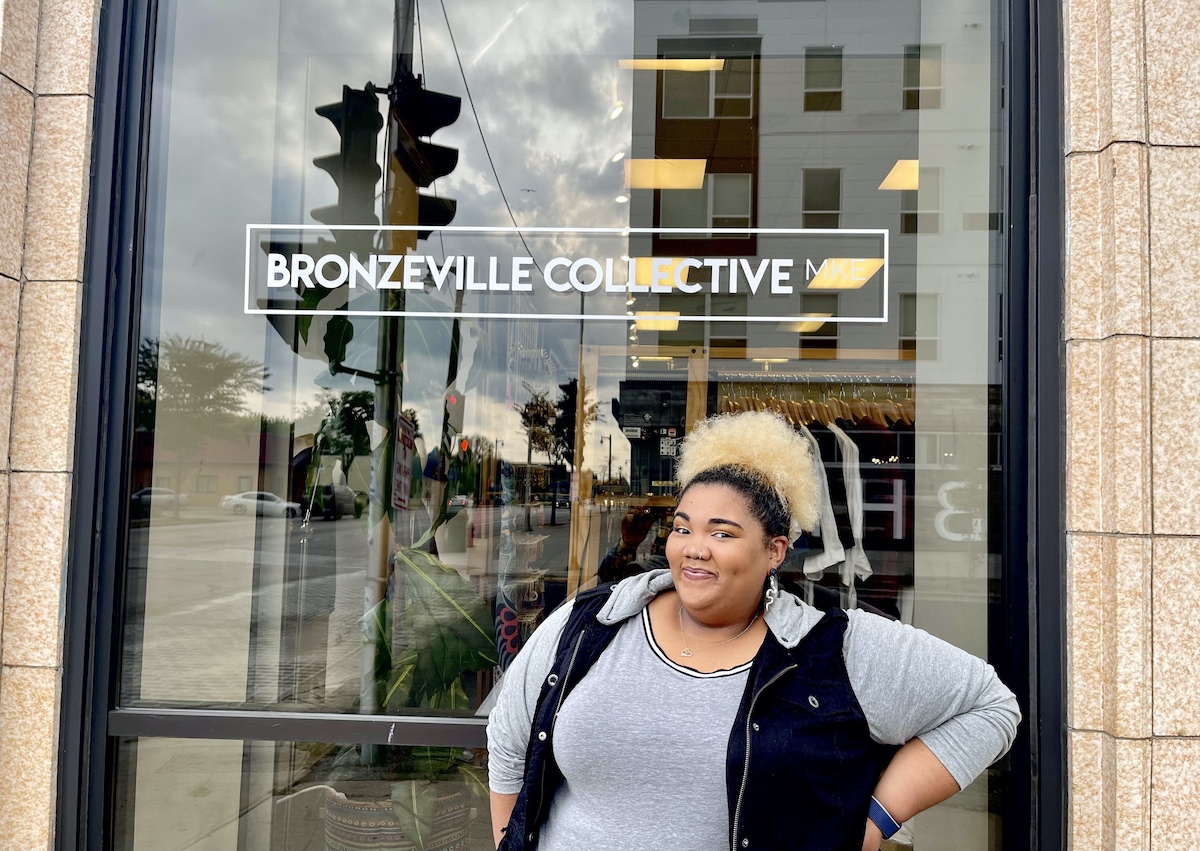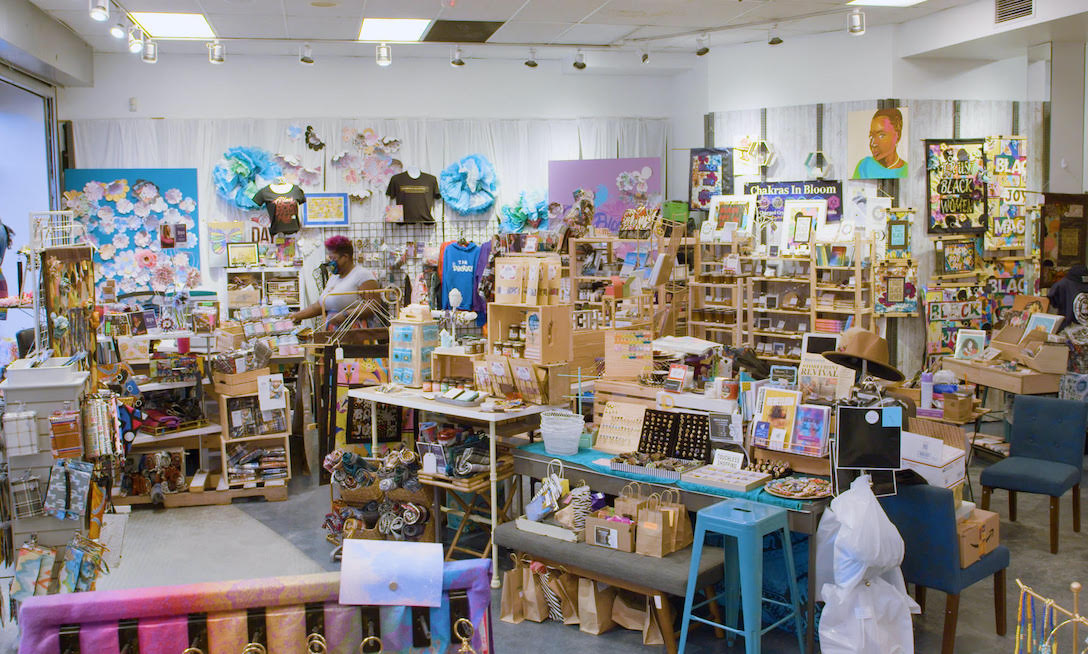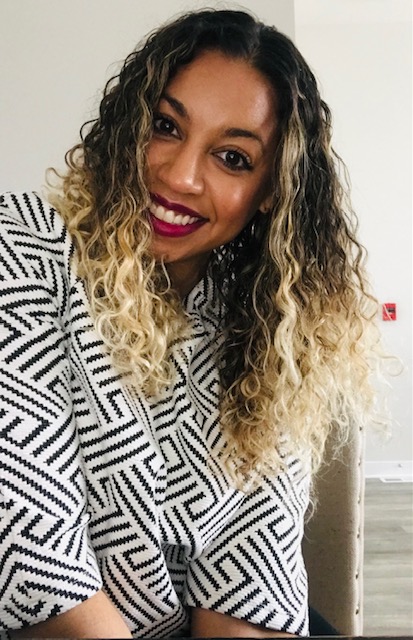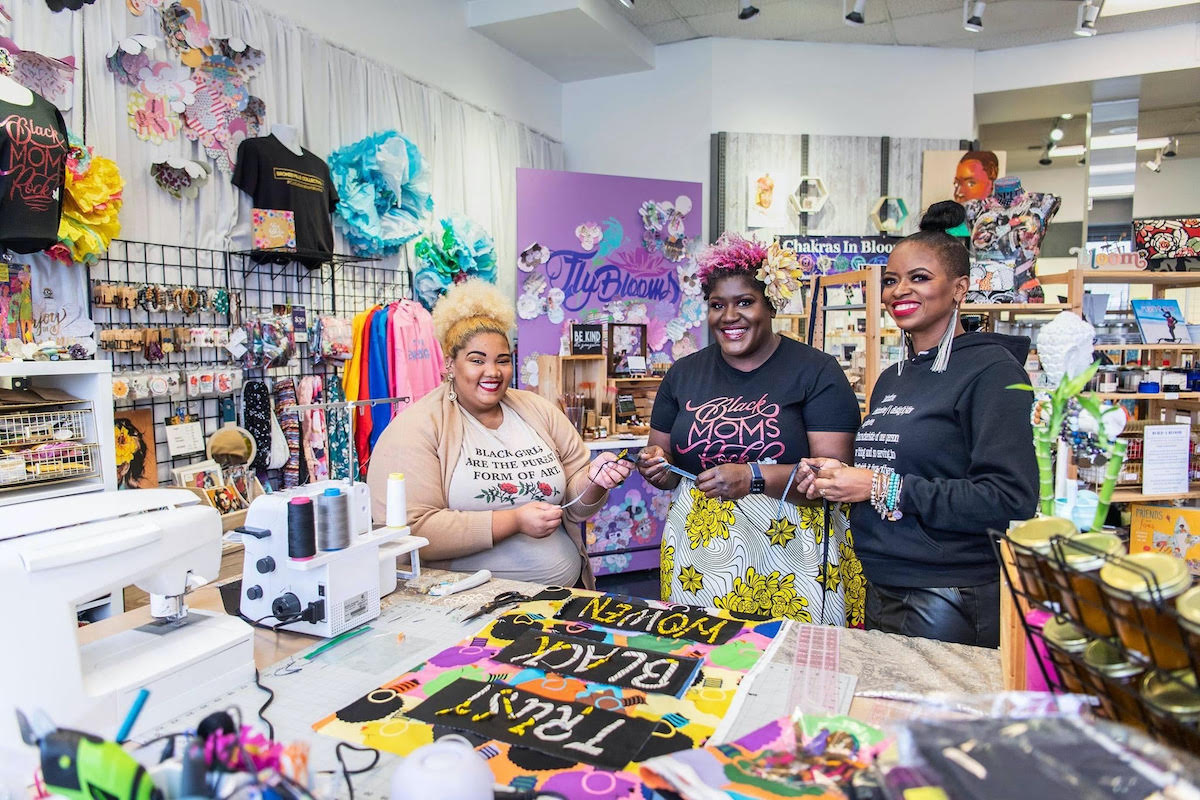For as long as she can remember, Lilo Allen has been creating art for change.
As a child, she would spend hours sitting in the restaurant where her mother pulled morning shifts, selling her handmade jewelry out of a small briefcase to the regulars. As a college student at the University of Wisconsin-Milwaukee, making and selling jewelry became more than a creative outlet. When her mother unexpectedly fell ill and required close care, creating became a mode to survive — mentally, spiritually and financially.
Today, Allen is thriving as a cofounder at Bronzeville Collective, a Black-owned collaborative storefront that features the art and works of more than 30 Black and brown, LGBTQ and ally artists. Founded in 2018, the store sits on the corner of Vel Phillips and North avenues, just outside of downtown in Milwaukee’s historic Bronzeville Arts and Culture District.

Bronzeville. (Courtesy photo)
The store’s location is intentional, Allen said. In the 1960s, the area was home to a thriving Black neighborhood. Bronzeville Collective’s storefront was once home to a Black dentist. But after years of systemically racist practices and the departure of family-sustaining manufacturing jobs, the area had fallen on hard times.
Now, amid ongoing civil unrest, its mission fits alongside other Milwaukee efforts to boost local businesses and support equitable community development such as the Sherman Phoenix entrepreneurship hub, the Granville Business Improvement District and the Lindsay Heights Neighborhood Improvement District. Bronzeville Collective is hoping to contribute to the Bronzeville area’s revitalization efforts and make similar economic and social impacts seen during the “renaissance.”
“We really want to pay homage to that legacy,” said Allen.
Besides providing visibility for artists, Bronzeville Collective makes vending more financially accessible, Allen said. Artists pay a vendor fee on a sliding scale and shop commission rates are lower, making its model more inclusive than traditional storefronts.
“When I first started out, I would have to shop my jewelry to consignment [shops] for 40 to 50% of the revenue,” Allen explained. “I kept thinking ‘these are handmade.’ Artists that we don’t know about need to be highlighted. They just need that chance and visibility.”

Lilo Allen outside of Bronzeville Collective. (Courtesy photo)
As the country continues to wrestle with political tensions and civil unrest, visibility, representation, and healing lie at the center of the collaborative’s mission, Allen said. Walking into the shop, a sign posted near the entryway makes that clear:
If you have symptoms of COVID, homophobia, transphobia or racism, you are not welcome in the Bronzeville Collective.
“We’re five minutes from downtown Milwaukee and you can see yourself represented in the space,” said Allen. “Some people can just walk in and hear the music. We are the only space of this kind. That means the world to me.”
As the creative owner of Papyrus & Charms, one of the store’s four anchor brands, Allen describes her works as culturally conscious wearable art. Inspired by her Afro-Caribbean roots and spiritual affinity, much of her work features crystals, messages of empowerment, and promotion of self-care, like candles, soaps, and bath bombs. But over the years, Allen’s creations — and many others at the shop — have taken on more significant meaning.
Art has become their way to fight against polarizing division — and provide space for BIPOC creators to move out from under the radar.
“As people of color, as queer people, we are always in a fight for a revolution,” Allen said. “But revolution doesn’t always look like ‘fighting.’ Somebody had to make those Black Panther posters, somebody had to tell the stories. We live in a capitalistic society, so I have to participate, but I do hope to affect my change on the world.”

Inside Bronzeville Collective. (Courtesy photo)
Before she helped launch Bronzeville Collective, Allen was crisscrossing the city to sell her handmade jewelry at neighborhood festivals, craft fairs, and marketplaces. Her friendship with fellow artist and Bronzeville cofounder Tiffany Miller led her to formalize her business — “There was so much I didn’t know, I didn’t know,” Allen said.
When the pair participated in Pop Up MKE after floating the idea of a collaborative, a program that allowed the artists to set up shop for 30 days to test their business model, they generated $17,000 for city creatives. Following their success, they pitched their idea through the Rise MKE competition and won “Fan Favorite,” using the prize funds to launch Bronzeville Collective.
Since opening, Allen has continued making waves across the city, winning grants and winning over customers through her activism and creations.
“Art is the key,” Allen said. “There is no change without inspiration. There’s no inspiration without being seen. When you feel represented, that’s truly the spark. That moment of affirmation can make all the difference on how you make your mark.”
Subscribe to This Week in Milwaukee Rising:

This article appears as part of This Week in Milwaukee Rising, a weekly newsletter from Technical.ly highlighting the innovators bringing a more just, equitable and dynamic Milwaukee economy. Subscribe here. The series is underwritten by American Family Insurance Institute for Corporate and Social Impact.
Before you go...
Please consider supporting Technical.ly to keep our independent journalism strong. Unlike most business-focused media outlets, we don’t have a paywall. Instead, we count on your personal and organizational support.
Join our growing Slack community
Join 5,000 tech professionals and entrepreneurs in our community Slack today!

The person charged in the UnitedHealthcare CEO shooting had a ton of tech connections

From rejection to innovation: How I built a tool to beat AI hiring algorithms at their own game

Where are the country’s most vibrant tech and startup communities?


